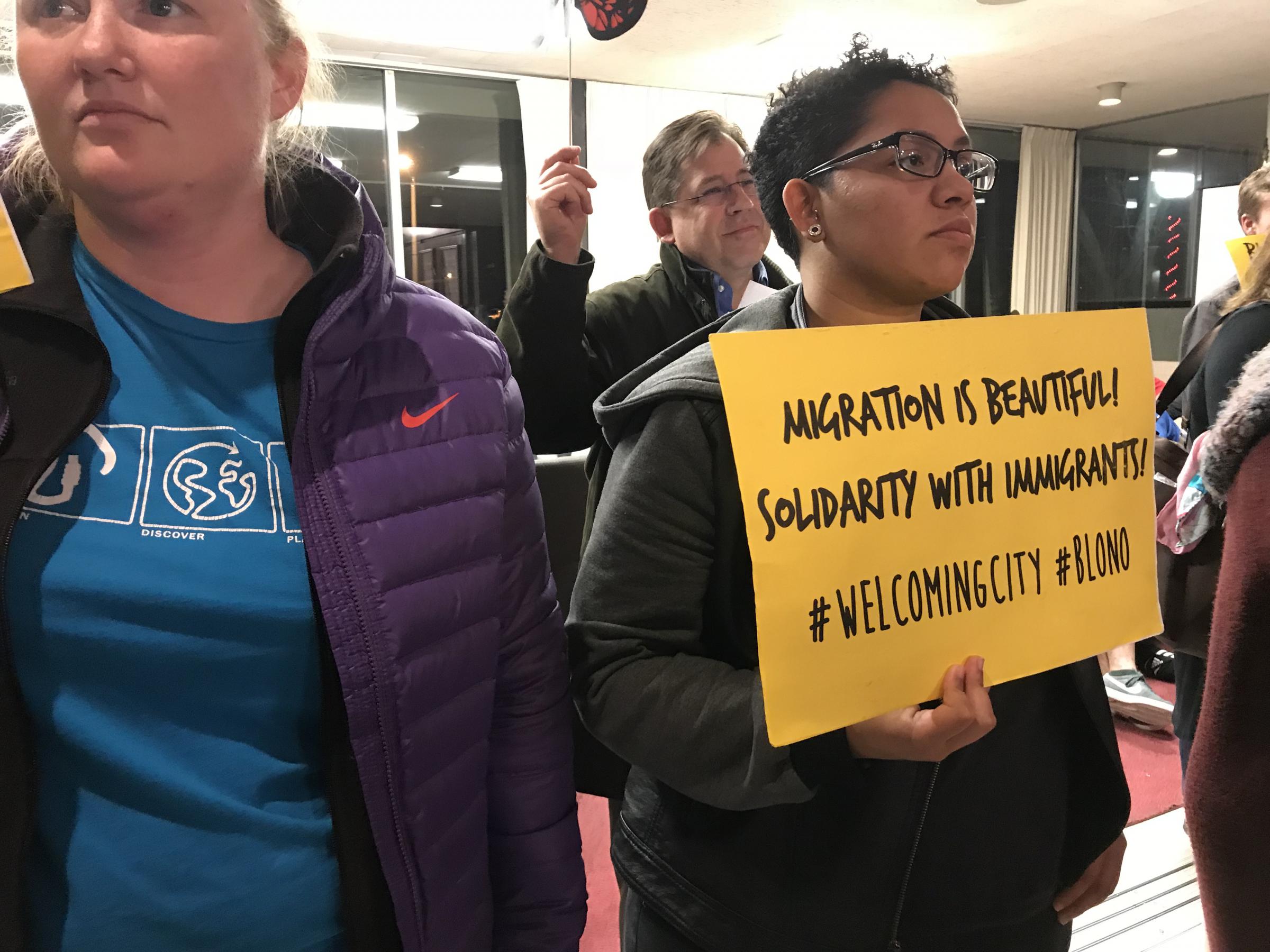Local civil rights leaders claimed victory Monday as the Bloomington City Council voted to create a new civilian board to advise the police chief—a step that supporters hope will improve how the city deals with complaints against its officers.
The vote was 8-1, with Ward 8 Alderman Diana Hauman the only “no” vote. Hauman, who represents the city’s southeast side, said she gathered input from many members of the community but still had concerns about the new board’s purpose and how its members would be selected and trained and what they’d be tasked with doing.
“I’ve given this eight months of thought, inquiry, research, and sleepless nights,” she said.
Hauman said she was disappointed that so many of the board’s advocates “said basically negative things about our police” during recent forums, including a 35-minute public comment session that opened Monday’s meeting.
“I heard very few people say thank you,” Hauman said. “I have a feeling that our police are being profiled just as members of the alliance (pushing for the board) indicate that police are profiling people of color. I’m sorry, but that offends me as a person.”
Monday’s vote caps a months-long effort by local organizations such as Black Lives Matter lobbying for creation of a board. It came in response to growing tensions in Bloomington between police and many members of the minority community, some of which were documented in a May report.
Bloomington Police Chief Brendan Heffner initially opposed creation of the board as other Illinois communities have done, but he appeared to soften his stance as public debate advanced.
Bloomington officer Stephen Brown, representing the police union (PBPA Unit 21), told aldermen before Monday’s vote that he’s in favor of building a better relationship between rank-and-file police and minority groups. He denied that Bloomington police target people based on their race.
But he said supporters of the new board have shifted their agenda and now want an outsized role in shaping policing policy. He questioned why they didn’t support controversial efforts to open a so-called police “community house” when it came before aldermen in January.
“It seems that we’re being painted as racist in this town,” Brown said, alleging that some who support the board want only to make life more difficult for police. “You have to ask yourself, as citizens of this town, do you want law enforcement’s job to be more complicated, or easier? Because if it’s easier, you’re going to be safer.”
Not In Our Town, YWCA McLean County, and the ACLU of Illinois joined Black Lives Matter in advocating for the board. Many spoke passionately at council meetings in recent months.
“This is just the beginning,” Jennifer Carrillo, director of mission impact at the YWCA, told a crowd of board supporters—many wearing Black Lives Matter shirts—as they cheered outside City Hall after the vote. Carrillo urged them to consider applying to serve on the board.
How Board Will Work
The seven-member Public Safety and Community Relations Board (PSCRB) is “purely advisory” to the city manager and police chief. Felons and police officers won’t be able to serve on the board—a controversial decision that civil rights advocates, aldermen, and board opponents wrestled over.
Among the PSCRB’s formal duties will be adding a “resident perspective” to the evaluation of civilian complains against police, as well as educating the community all the ways citizens to make formal and informal complaints. Members of the board will be appointed by the mayor with the with the approval of the Bloomington City Council by a two-thirds vote of all aldermen currently serving.
Its formal power is limited. The city’s police union contract does specifically limits “re-investigations and prohibit(s) the compulsion of police officer testimony in front of citizen review boards,” the city says.
“This is not an oversight board,” said Mayor Tari Renner. “It’s an advisory board.”
Ward 7 Scott Black said he wants to periodically check on the effectiveness of the board in the years to come.
“My focus right now is to make sure that folks feel that there’s an institution that will help them be heard,” said Black. “This document is the result of a lot of people working very hard toward a common goal.”




